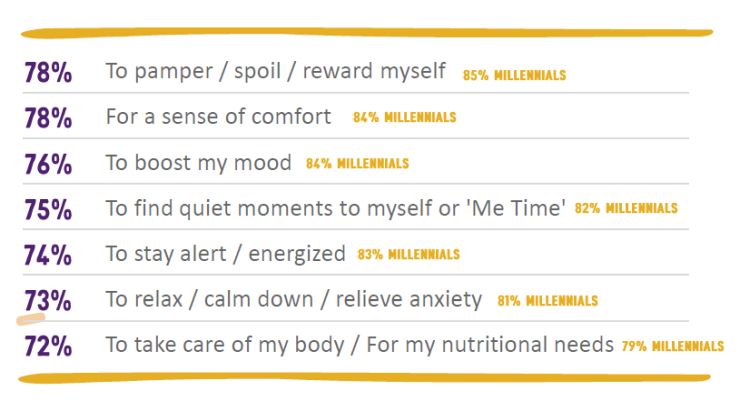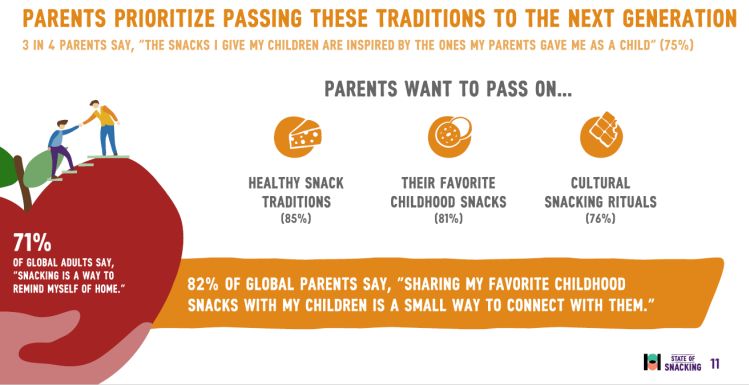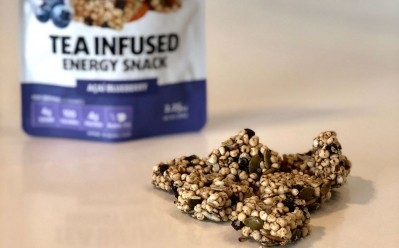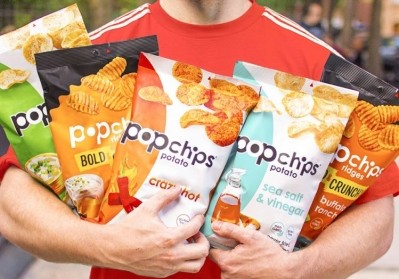Millennials are ditching three square meals to graze throughout the day, says Mondelēz
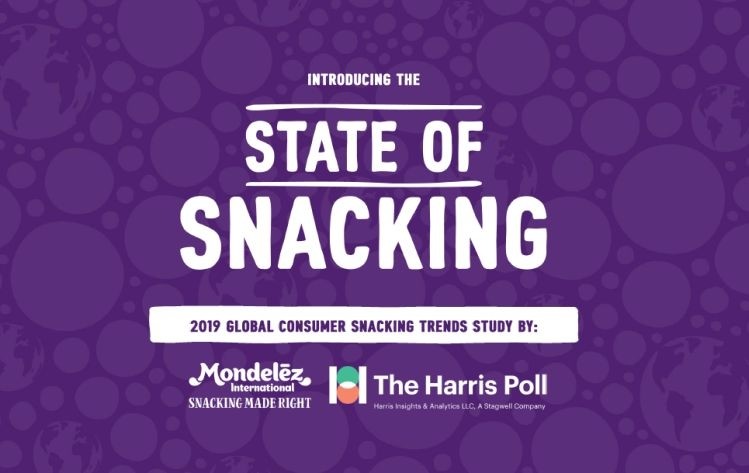
“The majority of global adults say they ‘prefer to eat many small meals throughout the day, as opposed to a few large ones’ (59%), including 72% of those in developing markets and 70% of millennials,” says Mondelēz in its first State of Snacking report, which is based on an online survey conducted by Harris Poll of 6,068 adults in 12 markets.*
While the nutritional profile of snacks was important to respondents, “The majority also say snacks are just as important to their mental (71%) and emotional (70%) wellbeing as their physical wellbeing,” said Mondelēz.
Snacks and self care
6 in 10 also agreed with the statement: “The snacks in my day are more for my personal needs, while meals tend to meet the needs of others.”
Millennials in particular were more likely to agree with statements such as, ‘[I eat snacks to] boost my mood/pamper myself/reward myself/spoil myself/for a sense of comfort.’
Cultural snacking rituals
Parents also want to pass on cultural snacking rituals onto their children, said Mondelēz, which found that two thirds of respondents said they tended to snack around the same time each day.
“Snacking is a key way people around the world connect to their culture and share their sense of identity with their communities and families. Over 7 in 10 global adults say snacking is a way to remind themselves of home (71%), more than 8 in 10 parents use snack time as a small way to connect with their children (82%), and 3 in 4 want to pass cultural snacking rituals on to their children (76%).
Health and indulgence
When it comes to health, said Mondelēz, “The majority of global adults acknowledge the need for balance, saying they ‘appreciate having the option of both healthy and indulgent snacks depending on the moment of need’ (80%).
"Two-thirds often look at portion control when selecting snacks (65%), and 83% of people agree a balanced diet can include a little indulgence."
The top 3 qualities respondents looked for in snacks were freshness (43%), low-sugar (36%), and low-fat (31%).
US snacking trends
In the US (download the US data) the top three motivations for snacking were:
- To boost my mood
- To stay alert/energized
- To pamper/spoil/reward myself
32% of millennials polled in the US hoped snacks would 'incorporate new and foreign flavors and formats' (vs. 24% of Americans overall).
*The United States (n=504), Canada (n=506), Mexico (n=505), Brazil (n=515), France (n=501), Germany (n=503), The United Kingdom (n=501), Russia (n=515), China (n=503), India (n=508), Indonesia (n=504), and Australia (n=504). Other key groups analyzed include: Centennials ages 18-22 (n=602), Millennials ages 23-38 (n=2404), Gen Xers ages 39-54 (n=1702), Boomers ages 55-73 (n=1236), and the Silent Generation ages 75+ (n=124).
